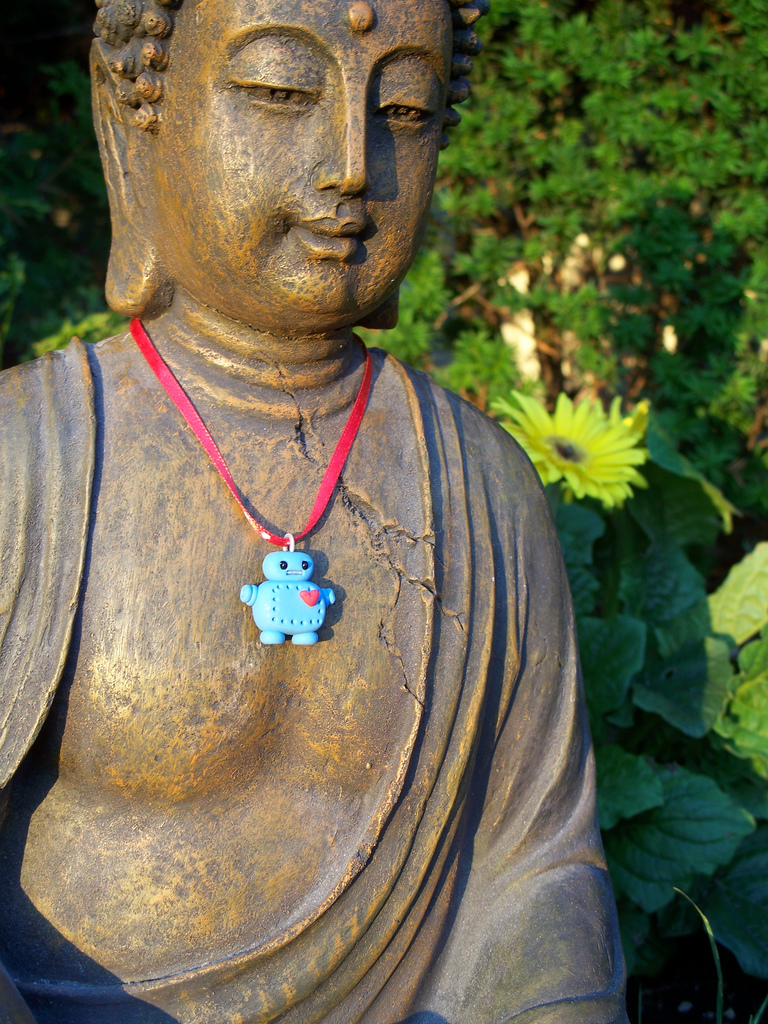This week, Harry and Scott take up the topic of Buddhism and science fiction, inspired in part by our off-hand conversation about Cthulhu from a couple weeks back and in part by Harry reading Philip K. Dick’s Do Androids Dream of Electric Sheep, the novel that in turn inspired the movie Blade Runner. (Spoiler alert! We give away the ending and lots of plot points, so, you know, listener beware.) This gets us talking about several themes in several seminal sci-fi works that are relevant to Buddhism and Buddhist philosophy including the nature of the self, what it means to be human/a sentient being, what is reality, and, of course, “who am I?” Dick’s story seems to suggest that empathy is the defining characteristic that sets humans apart from artificially created replicant androids. In Blade Runner, memory serves a similar function. But in both the book and the film, empathy and memory can be artificially generated which highlights the way that sci-fi is able to force us to question reality or to see reality in a different way. This of course gets us into Star Trek, The Matrix, Starship Troopers, and Star Wars, among other things. Scott unapologetically calls the original 1977 Star Wars film a “pretty cheesy movie” (break out the fan-boy hate mail!) before we wrap it all up with the question of what any of this has to do with Buddhism — a conversation that is continued in part two.
Don’t forget to check the website for information on our live recording next month and, as Harry recommends at the start of this episode, follow him on Twitter.
Podcast: Play in new window | Download (Duration: 28:37 — 32.8MB) | Embed
Subscribe: Apple Podcasts | RSS

